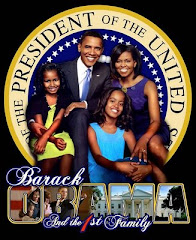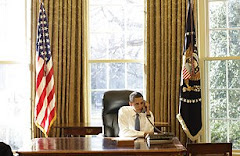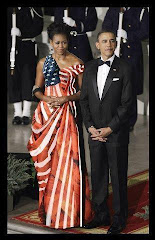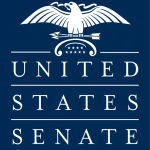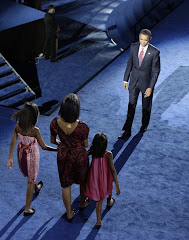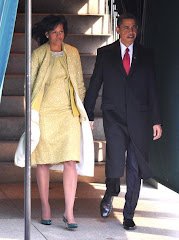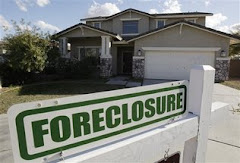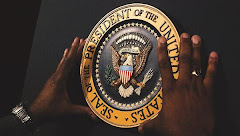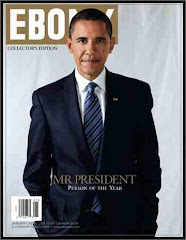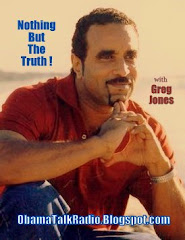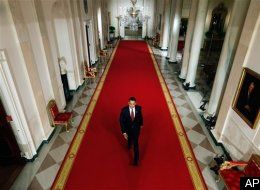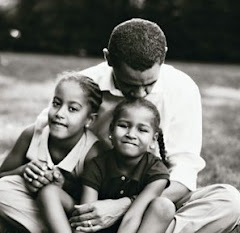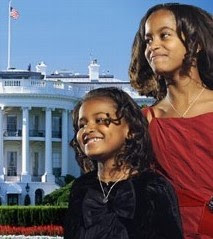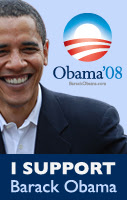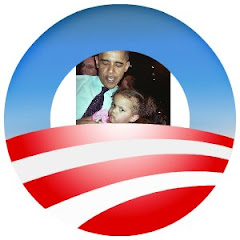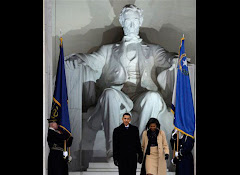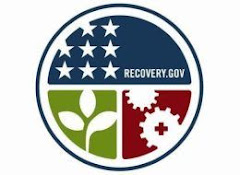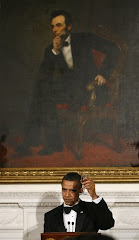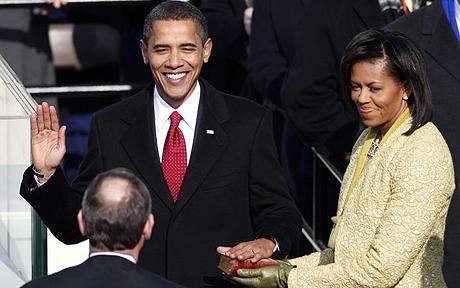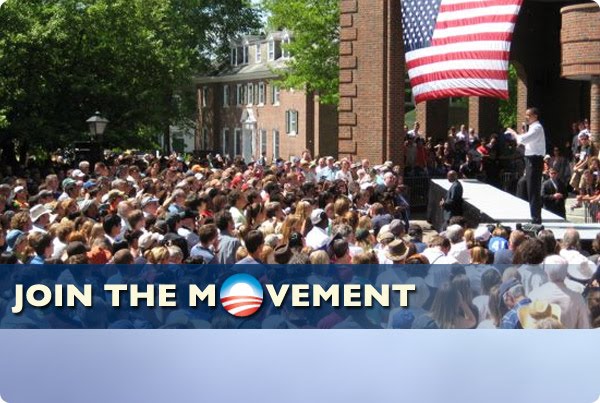
BARACK OBAMA'S
Message To Black America !
JENA 6, Racism, Injustice
and The New Movement !
In an attempt to sabotage Obama's campaign, black 'leaders' like Al Sharpton and writer Shelby Steele claim Obama can not win the black votes needed to win the nomination because he does not address black issues which is a bold faced lie. Here is Obama's 'Message To Black America'. Stop the hatred Al & Co..Obama Is For ALL !!! (read)
Speech from Howard University
"To all of the honored and distinguished guests faculty staff and students, it is a privilege to be a part of today's convocation, and an honor to receive this degree from Howard.
Now there are few other universities that have played so central a role in breaking down yesterday's barriers, and inching this country closer to the ideals we see inscribed on the monuments throughout the city.
It is because of those victories that a black man named Barack Hussein Obama can stand before you today as candidate for President of the United States. I am not just running to make history. I am running because I believe that together we can change history's course. It's not enough just to look back and wonder how far we've come; I want us to look ahead with fierce urgency at how far we have to go. I believe its time for this generation to make its own mark, to write our own chapter in the American story.
Those who came before us did not strike a blow against injustice only so that we would let injustice fester in our time. Thurgood Marshall did not argue Brown so that we could accept a country where too many African American men end up in prison because we'd rather spend more to jail a 25-year-old than to educate a 5-year-old. Dr. King did not take us to the mountaintop so that we would allow a terrible storm to ravage those who were stranded in the valley. He did not expect that it would take a breach in the levees to reveal a breach in our compassion; that it would take a hurricane to reveal the hungry God asked us to feed, the sick he asks us to care for, the least of these he asks us to treat as our own.
I am certain that nine children did not walk through the doors of a school in Little Rock so that our children would have to see nooses hanging at a school in Louisiana. It's a fitting reminder that the 50th anniversary of Little Rock fell on this week. Because when the doors of that school finally opened, a nation responded. The President sent the United States Army to stand on the side of justice. The Congress passed the Civil Rights Act of 1957. The Department of Justice created a civil rights division and millions of Americans took to the streets in the following months and years so that more children could walk through more doors.
These weren't easy choices to make at the time. President Eisenhower was warned by some that sending the army down to Little Rock would be political suicide. Resistance to civil rights reform was fierce. We know that those who marched for freedom did so at great risk, for themselves and their families--but they did it because they understood that there are some times in our history, there are moments when what's truly risky is not to act. What's truly risky is to let the same injustice remain year after year after year. What's truly risky is to walk away and pretend it never happened. What's truly risky is to accept things as they are, instead of working for what they could be. In a media driven culture that's more obsessed with who's beating who in Washington, or how long Paris Hilton is going to be in jail, these moments are harder to spot. But every so often they do appear. Sometimes it takes a hurricane, sometimes it takes a travesty of justice like the one we've seen in Jena, Louisiana.
There are some who will make Jena about the fight itself. And it's true that we have to do more as parents to instill our children with the idea that violence is always wrong: It's wrong when it happens on the streets of Chicago; it's wrong when it happens in a schoolyard in Louisiana. Violence is not the answer. And all of us know that more violence is perpetrated between blacks than between blacks and whites. Our community has suffered more than anything from the slow, chronic tolerance of violence. Nonviolence was the soul of the civil rights movement. We have to do a better job of teaching our children that virtue.
But we also know that to truly understand Jena you have to look at what happened both before and after that fight. You have to listen to the hateful slurs that flew through the hallways of that school. You have to know the full measure of the damage done by that arson; you have to look at those nooses hanging on that schoolyard tree, and you have to understand how badly our system of justice failed those six boys in the days after that fight. The outrageous charges, the unreasonable and excessive sentences, the public defender who did not call a single witness.
Like Katrina did with poverty, Jena exposed glaring inequalities in our justice system that were around long before that schoolyard fight broke out. It reminds us of the fact that we have a system that locks away too many young first time nonviolent offenders for the better part of their lives; a decision that's not made by a judge in a courtroom but all too often by politicians in Washington and state capitals across the country. It reminds us that we have certain sentences that are based less than on the kind of crime you commit than where you come from, or what you look like. It reminds us that we have a Justice Department whose idea of prosecuting civil rights violations is to roll back affirmative action programs at our colleges and universities; a Justice Department whose idea of prosecuting voter fraud is to look for voting fraud in black and Latino communities where voting fraud does not exist. And you know that these inequities are there. We know they're wrong. And yet they go largely unnoticed until people finally find the courage to stand up and say they're wrong--until someone finally says: It's wrong that Scooter Libby gets no jail time for compromising our national security while a 21-year-old honor student is sitting in a Georgia prison for something that was not even a felony.
It's not always easy to come out and say this. I commend those of you at Howard that have spoken out on Jena Six or traveled to the rally in Louisiana. I commend those of you who have spoken out on the Genarlow Wilson case. I know it can be lonely protesting this kind of injustice. I know there's not a lot of glamour in it. Because when I was a state senator in Illinois we have a death penalty system that had sent 13 innocent people to their death--13 innocent men that we know. I wanted to reform the system, and I was told by almost everyone that it was not possible, that I wouldn't be able to get police officers and civil rights activists to work together, Democrats and Republicans to agree that we should videotape confessions to make sure they weren't coerced. Folks told me that there was too much political risk involved, and it would come to haunt me later, when I ran for higher office. But I believed that it was too risky not to act. And after a while people with opposing views came together and started listening. And we ended up reforming that death penalty system, and we did the same when I passed the law to expose racial profiling.
So don't let anyone tell you that change is not possible. Don't let them tell you that standing out and speaking up about injustice is too risky. What's too risky is keeping quiet. What's too risky is looking the other way. I don't want to be here standing and talking about another Jena four years from now because we didn't have the courage to act today. I don't want this to be another issue that ends up being ignored when the cameras are turned off and the headlines disappear. It's time to seek a new dawn of justice in America.
From the day I take office as President of the United States--has a ring to it, doesn't it? From the day I take office as President, America will have a Justice Department that is truly dedicated to justice, the work it began in the days after Little Rock. I will rid the department of idealogues and political cronies, and for the first time in eight years the civil rights division will actually be staffed with civil rights lawyers who prosecute civil rights violations, and employment discrimination and hate crimes.
And we'll have a voting rights section that actually defends the rights of all American to vote without deception or intimidation. When fliers are placed in our neighborhoods telling people to vote on the wrong day, that won't be an injustice--it will be a crime. As President of the United States I will also work every day to ensure that this country has a criminal justice system that inspires trust and confidence in every American regardless of age or race or background. There's no reason that every person accused of a crime shouldn't have a qualified public attorney to defend them. We'll recruit more public defenders to the profession by forgiving college and law school loans. I will be asking some of the brilliant young minds here at Howard to take advantage of that offer. There's no reason why we can't pass a racial profiling law like I did in Illinois, or encourage states to reform the death penalty so that innocent people do not end up on death row.
When I am President I will no longer accept the false choice between being tough on crime and vigilant in our pursuit of justice. Dr. King said: 'It's not either/or, it's both/and.' Black folks care about stopping crime. We care about being tough on violence. But we can have a crime policy that's both tough and smart. If you're convicted of a crime involving drugs, of course you should be punished. But let's not make the punishment for crack cocaine that much more severe than the punishment for powder cocaine when the real difference is where the people are using them or who is using them. Republicans have said they think that's wrong, Democrats think that's wrong and yet it's been approved by Republican and Democratic presidents because no one has been willing to brave the politics and make it right. But I will, when I am President of the United States of America.
I think its time we took a hard look at the wisdom of locking up some first time nonviolent drug users for decades. Someone once said, and I quote: 'While minimum sentences for first-time users may not be the best way to occupy jail space, and/or heal people from their disease.' You know who said that? That was George W. Bush--six years ago. And I don't say this very often, but I agree with George W. Bush. The difference is that he hasn't done anything about it. When I am President of the United States, I will. We will review these sentences to see where we can be smarter on crime and reduce the blind and counterproductive warehousing of nonviolent offenders. We will give first-time nonviolent drug offenders a chance to serve their sentence where appropriate, in the type of drug rehab programs that have proven to work better than a prison term in changing bad behavior and reducing recidivism. So let's reform the system. Let's do what's smart. Let's do what's just.
Now there's no doubt that taking these steps will restore a measure of justice and equality to America. It will also restore a sense of confidence to the American people that the system doesn't just work, it works for everyone. But there's a broader point I'd like to meet here today. If I have the opportunity to lead this nation, I will always be a president who hears your voice and understand your concerns. A President whose story is like so many of your own. Whose life work has been the unfinished work of our long march towards justice. And I will stand up for you, and fight for you, and wake up every single day thinking about how to make your lives better.
The truth is, though, one man cannot make a movement. No single law can erase the prejudice in the heart of a child who hangs a noose on a tree. Or in the callousness of a prosecutor who bypasses justice in the pursuit of vengeance. No one leader, no matter how shrewd, or experienced, or inspirational, can prevent teenagers from killing other teenagers in the streets of our cities, or free our neighborhoods from the grip of homelessness, or make real the promise of opportunity and equality for every citizen.
Only a country can do those things. Only this country can do those things. That's why if you give me the chance to serve this nation, the most important thing I will do as your President is to ask you to serve this country, too. The most important thing I'll do is to call on you every day to take a risk, and do your part to carry this movement forward. Against deep odds and great cynicism I will ask you to believe that we can right the wrong we see in America. I say this particularly to the young people who are listening today. ...
I know that you believe it's possible too. The most inspiring thing about the response to Jena was that it did not begin with the actions of any one leader. The call went out to thousands across the internet and on black radio and on college campuses like Howard. And, like the young Americans of another era, you left your homes and you got on buses and you traveled south. It's what happened two years earlier when Americans from every walk of life took it upon themselves to save a city that was drowning. It's how real change and true justice have always come about. It takes a movement to lift a nation. It will take a movement to go into our cities and say that is not enough just to fix our criminal justice says what we really need is to make sure our kids don't end up there in the first place. ...
It's time to finish what we started in Topeka, Kansas and Little Rock, Arkansas. It will take a movement of every American from every city and town, every race and every background to stand up and say: No matter what you look like or where you come from, every child in America should have the opportunity to receive the best education this country can offer. Every child. We recruit an army of new teachers, and we pay them better, and we give them more support. It will take a movement to ensure that every young person gets the chance that Howard has given all of you, to say that at the beginning of the 21st century, college education is not a luxury for those who can afford it--it is the birthright of every single American. So when we go back to your class rooms and your dorm rooms and you begin this new year at Howard University, I ask you to remember how far we've come, but I urge you to think about where we need to go. I urge you to think about the risks you will take and the role you will play in the movement that will get us there.
And I finally ask you to remember the story of Moses and Joshua, I spoke about this when I was in Selma, the 42nd anniversary of Bloody Sunday and the march across the Edmund Pettus Bridge. Most of you know that Moses was called by God to lead his people to the promised land. And in the face of a pharaoh and his armies, across an unforgiving desert and along the walls of an angry sea, he succeeded in leading his people out of bondage in Egypt. He led them through great dangers and they got far enough so that Moses could point the way toward freedom on the far banks of the river Jordan. Yet it was not God's plan to have Moses cross the river. Instead he would call on Joshua to finish the work that Moses began. He would ask Joshua to take his people that final distance. Everyone in this room stands on the shoulders of many Moseses. Many Moseses fought and battled here at Howard University. They are courageous men and women who marched and fought and bled for the rights and freedoms we enjoy today. They have taken us many miles over an impossible journey.
And to the young people here: you are members of the Joshua Generation. It is up to you to finish the work that they began. it is up to you to cross the river. When Joshua discovered the challenge he faced he had doubts and he had worries. He told God: 'Don't choose me, I'm not strong enough, I'm not wise enough; I don't have the training; I don't have enough experience.' God told Joshua not to fear; he said 'Be strong and have courage, for I am with you wherever you go.' Be strong and have courage. Be strong and have courage in the face of anything. Be strong and have courage and we will cross over into that promised land together. Thank you."
Senator Barack Obama
(From Blacks4Barack ! Please share this powerful message with everyone.
